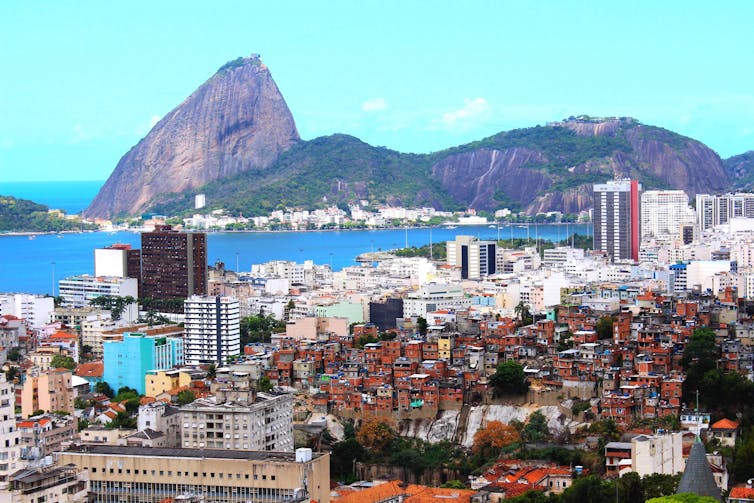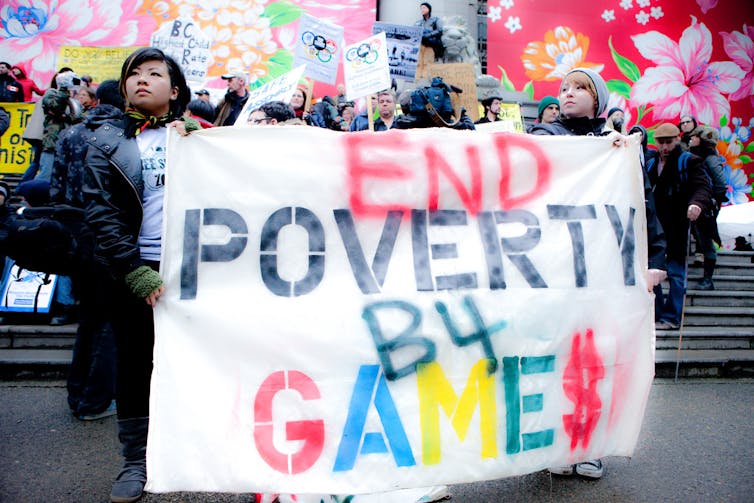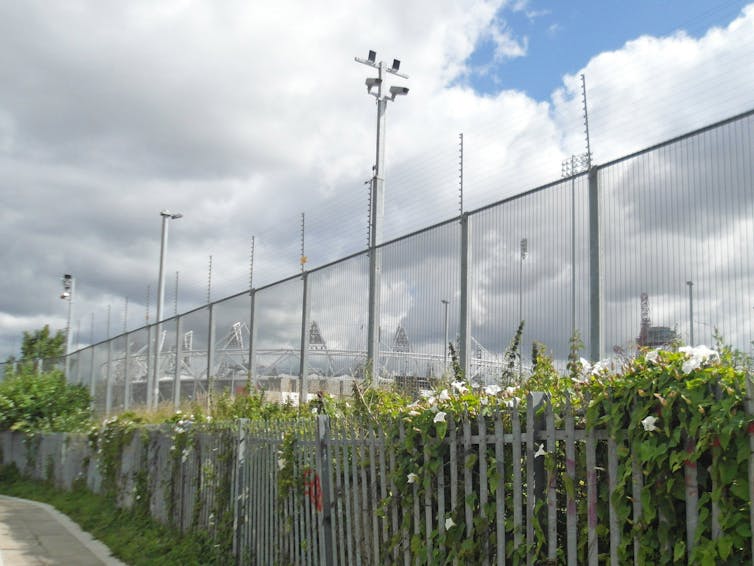why countries and City no longer want to host the Olympics?
Hosting the Olympic Games is great for a city, right? Or at least good? Anyway, it’s not a bad thing—or is it? The truth is that the track record for Olympic host cities is pretty uneven. Many cities have found that welcoming the world’s athletes and their fans for two weeks produces far fewer benefits than were anticipated in the heady days that the city first made its bid. Here are some ins and outs of hosting an Olympics and how they contribute to the Games’ impact on a city.
The Bid
The hosting process usually begins some 11 years before the Games are held as cities within various countries vie to become national candidates. Civic and political leaders play their part, but these efforts are primarily driven by business concerns that stand to profit most: construction companies and unions, architectural firms, banks, and hotels. Two years of cost estimates, high-end marketing campaigns, and schmoozing narrow the field to the national candidate. Nine years out, national applicants make their bid to the International Olympic Committee for an entry fee of $150,000. Three to five cities are chosen as finalists, with the opportunity to pony up $500,000 and put together slicker, more-elaborate proposals. Before Chicago was done making its unsuccessful finalist bid for the 2016 Olympics, it had enlisted U.S. Pres. Barack Obama as lobbyist in chief and spent $100 million–$150 million.
Large-Scale, High-Risk Megaproject
Hosting the Olympics is an enormous, high-risk undertaking. Unlike most other megaprojects, Olympic facilities have a rock-solid completion date that must be met. Dams, courthouses, and highways can be completed late; Olympic facilities can’t. Neither athletes nor competitors like wet concrete. As a result, finishing construction has often involved extra crews working around the clock, which means cost running over. A study by researchers at the University of Oxford found that the cost of Olympic Games overrun with 100 percent consistency. According to the same study, the cost of the 2004 Athens Olympic Games ran over by 60 percent; the Albertville, France, 1992 Olympic Winter Games ran over 135 percent; and the Lake Placid, New York, 1932 Olympic Winter Games ran over by 320 percent.
If You Build It, They Will Come
Okay, so the budget for hosting the Games usually gets busted, but then there’s a big payoff, right? Yes and no. Tourists will come to see the competition, stay in hotels, eat in restaurants, and buy stuff. On the other hand, some tourists interested in a city’s other attractions but put off by crowds will stay away during the Games. It depends a lot on how much a of tourist magnet a city is to begin with. During the 2012 London Games, attendance at the city’s famous theatres declined, and hotel bookings in Beijing dropped during that city’s Olympic summer in 2008. But for Barcelona the 1992 Games served to relaunch the city as a destination. Other cities are put on the map by the Games. How long they stay there is the trick.
The prospect of hosting any mega-event – especially the Olympic Games – is cause for serious consideration. At local, national, and international levels, the discussion takes shape around two key questions: is it worth it? And if so, for whom?
The question of worth is not limited to cost – although that certainly remains a crucial feature. Rather, there exists a series of interrelated concerns about how mega-events can disrupt cities, and distract from long-term planning agendas. Bids to host the 2024 Olympics from both Boston and Hamburg were withdrawn for such reasons. Meanwhile, Rio de Janeiro is demonstrating just how challenging preparations for the Olympic Games can be.
Here, we take a closer look at five key reasons why a city might be reluctant to host the Olympic Games.
1. Sheer cost
Let’s get the obvious out of the way. Here are the estimated costs of the last four Olympics, and the projected cost of the upcoming games in Rio.
- Sydney 2000: US$4.7 billion
- Athens 2004: €9 billion
- Beijing 2008: US$42 billion
- London 2012: US$11 billion
- Rio 2016: US$15 billion or more (over two decades following the event)
While the exact cost of any Olympics is difficult to pin down, and is often a point of contention, the last three games witnessed unparalleled public and private investment. Beijing, London and Rio have built longer term “legacy” planning into their budgets, to try to ensure that investment in hosting the games continues to pay off for years after the event.

Olympic legacies are hard to come by. Dany13/Flickr, CC BY Such legacy promises often promote infrastructure redevelopment, improved transportation systems, economic growth and job creation, projects of urban renewal and regeneration, improved physical activity participation and environmental sustainability. In Rio, planned infrastructure developments are set to continue through to 2030.
The financial undertaking for such bids – and the subsequent planning and implementation – is nothing short of enormous. Undoubtedly, the most significant cost relates to the (re)development of urban infrastructure. This leads us to our second deterrent.
2. Infrastructure challenges
Hosting a mega-event always involves urban renewal and regeneration. Yet developing the sporting stadia, accommodation and transportation networks to cope with increased numbers of tourists and athletes is anything but straightforward. Before refashioning the urban landscape, planners must know which sites are to be redeveloped, for whom, and to what end.
Clearly, catering to the demands of the International Olympic Committee (IOC) is one priority. But arguably, it is the least significant. Rather, planners seek to capitalise on urban space by re-imagining the city as a recreational environment – a resource for tourism and consumerism. Retail, festival, sporting, leisure, hotel and heritage spaces are at the core of this vision.
While improvements to transportation may provide benefits to the populace, these redevelopments only offer hope for increased tourist dollars and a small number of low-paying jobs. One example is the Estádio Mario Filho (better known as the Maracanã) stadium in Rio, which underwent more than US$500m in renovations ahead of the 2014 World Cup. Once cast in the populist light of the 1950s to communicate ideas of democracy, it now aims to attract a different kind of person: the consumption-oriented international tourist.
One of the central challenges of hosting any mega-event is what to do with the new infrastructure after the athletes and tourists have gone. Some host cities – such as Barcelona – have made good use of their stadia, but others are replete with white elephants. Montreal, Sydney, Athens, Beijing and Vancouver have all had their share of post-olympics venue failures.
The 2010 World Cup in South Africa offers a particularly stark warning: the stadia continue to rot from disuse. And Brazil appears destined to repeat the same mistakes, as the country struggles to find a purpose for its 2014 World Cup facilities. White elephants are highly-visible reminders that mega-events may not be worth the cost. But there’s an even more insidious side-effect which is often overlooked.
3. Human rights violations
Building new infrastructure in a city means destroying established urban areas. When that happens, local populations and communities are often dispersed and displaced. To make way for Beijing’s 2008 Olympic infrastructure, an estimated 1.5m people were forcibly evicted from their homes with minimal compensation. The neighbourhoods were destroyed and residents removed to the outskirts of the city far from friends, family and places of work.

Olympic protests. Krus Krug/Flickr, CC BY-NC-ND In Rio, the forced eviction process has taken on a militarised ethos, as Police Pacification Units (Unidade de Polícia Pacificadora) try to control a number of the city’s favelas. Demolition, displacement and the razing of Unesco world heritage sites all feature in preparations for the games.
Repressive measures within China and Tibet at the 2008 games, LGBT rights issues surrounding the 2014 Winter Games in Sochi and casualties on construction sites for the Qatar 2022 World Cup all point toward the persistent human rights issues which all too often accompany mega-events. Rather than representing unity and diversity, it seems as though the Olympic Games have started to signify oppression and exclusion.
4. Fear and security
In many host cities, publicly-funded yet privately-owned urban renewal projects have been leveraged to impose enhanced surveillance measures. For instance, London 2012 saw the rise of “defensible” architecture, which restricts the access and activities of those deemed “undesirable” – particularly skateboarders, protesters and the homeless – in newly-developed areas.
London’s Strand East Community – developed by Vastint Holding B.V., IKEA’s holding company for residential development, ahead of the 2012 Olympics – is characteristic of the city’s propensity towards “enclave living”. This means a high security presence, which accepts those with the capital to invest, and rejects those who are deemed a threat to the safety and security of its residents. Such projects have caused urban spaces to be splintered. Those who lack the desire or means to engage with the consumer economy are stigmatised as “unwanted”.

This process of securitisation has been fuelled by fear of attacks on popular sporting events, such as the bombing of the 2013 Boston Marathon and the targeting of Paris’ Stade de France in November 2015. Planning committees have been burdened with the impossible task of preventing such attacks, by building security into the infrastructure, planning, organisation and practices associated with mega-events.
5. International prestige
Hosting a mega-event can create buzz, offer the chance for a positive re-brand or garner international prestige. But it can also draw unwanted attention and bad press. Host nations often obscure human rights violations, but will find it more difficult to manage the high-profile political and economic problems associated with international organisations like the IOC. For example, political scandals have recently tarnished the reputations of sporting bodies such as FIFA and the IAAF.
By being more aware of the potential pitfalls of hosting mega-events, residents are in a better position to engage with the bidding process – or to resist it, like those involved in the “No Boston Olympics” campaign. Instead of grasping at opportunities to host the Olympics, city authorities are getting better at considering how the games actually fit with their priorities – or if they do at all. This can only be a good thing.
Infrastructure Keeps on Giving…or Does It?
Hosting the Olympics increasingly has been an impetus for addressing some of a host city’s pressing needs, especially in terms of infrastructure. Streets and bridges are refurbished or, like mass-transit lines and public buildings, constructed anew. Projects that have lingered on the drawing board for decades are prioritized and expedited. Only some 17 percent of expenditures for the 1992 Barcelona Games went exclusively toward sports; 83 percent was aimed at urban improvement. The key to the benefits of these projects is what their long-term utility is and whom they benefit. Venues constructed for the Athens 2004 Games famously remain unused and have fallen into disrepair. Today, Beijing’s magnificent Bird’s Nest stadium hosts football (soccer) games, but its schedule is open enough that, for a fee, one can ride a Segway around it. These facilities are, in the parlance of Olympic punditry, “limping white elephants.” Many Brazilians complain that the new transit built for the 2016 Rio de Janeiro Games services only high-income neighborhoods. Conversely, London’s largely depressed East End was revitalized by construction for the 2012 Games, Barcelona’s waterfront was reinvigorated, Seoul’s Han River got a major cleanup for the 1988 Games, and citizens of Vancouver and its visitors love the transit line built from downtown to the airport for the 2010 Winter Games.
Legacy
Lately, determining a Games’ success or failure comes down to its “legacy,” the measuring-stick concept developed by the surprisingly large body of academics concerned with the Olympics. Most of them agree that legacy involves a Games’ long-term planned and unplanned, positive and negative political, economic, social, cultural, infrastructural, and environmental impacts on a city. The sought-after positive legacy outcomes include urban renewal, increased tourism and employment, enhanced city image and reputation, improved public welfare, and a renewed sense of community. Among the negative outcomes measured are ongoing debt from construction, infrastructure that becomes unnecessary after the Games, increased rent, and unjust displacement of citizens.
Winners
Atop the list of cities with winning Olympic legacies is Los Angeles, whose pragmatic low-frills approach to hosting the 1984 Games was grounded in using existing facilities, including the majestic Coliseum built by the city to host the 1932 Games. In the process, the 1984 L.A. Games turned a tidy $200 million-plus profit and inspired the aspirations of other cities. The 2000 Sydney Games have been celebrated by many pundits as the best-organized Olympics in modern history, with a legacy of an improved environment, useful new transportation, real-estate development, and world-class infrastructure. Most notably, a thriving suburb has grown up around the Olympic Park district, the venues of which continue to host rugby, cricket, soccer, and Australian rules football games, concerts, and numerous international sporting events. As already noted, Barcelona also made out, revitalizing its international image along with its waterfront. While Beijing spent some $40 billion for the 2008 Games and Sochi spent about $50 million for the 2014 Winter Games, London fared much better than either as it staged its third Olympics in 2012 (having also hosted in 1908 and 1948) for about $20 million. In addition to putting on a great show, revitalizing the East End, and polishing its international image, London avoided elephantine obsolescence for its Olympic stadium by designing it so that its seating capacity can be adjusted down to 25,000 when desired.
Losers
Among the cities that were most “boondoggled” by hosting the Olympics was Montreal, the site of the 1976 Games. Although its flamboyant longtime mayor Jean Drapeau famously boasted that “the Olympics can no more lose money than a man can have a baby," the Montreal Games swamped the city in debt until 2006. A projected cost of $360 million ballooned to $1.6 billion when the final beans were counted, partly owing to mismanagement by Drapeau (who had proposed funding the Games with the sale of commemorative coins) and labor disputes. Not only did Athens take a hit from the 2004 Games, but some observers have pointed to the city’s less-than-stellar performance as a catalyst for the country’s financial and economic collapse in 2008–09. The overrun on the final bill for the Athens Games worked out to a cost to Greek taxpayers of about €50,000 per household. (And we’ve already touched on Athens’s proliferation of white elephant venues.) The Sochi 2014 Winter Games were a public-relations disaster for Vladimir Putin’s Russia. Despite their $50 billion price tag, the highest to date, Sochi was still awash in unfinished hotel rooms when the world started to arrive. Packs of dogs reportedly roamed the Olympic Village, and one of the giant Olympic rings failed to light at a crucial moment during the opening ceremony (hardly enhancing the reputation of Russian technology). But the most-damning aspect of Sochi’s legacy was its association with homophobia as a result of a Russian law that banned ”propaganda” that espoused “nontraditional sexual relations," not to mention the claim by Sochi’s mayor that the city had no gay residents. The threat of terrorism also haunted the Sochi Games, and the lack of its occurrence may have been Sochi's most-positive outcome.
